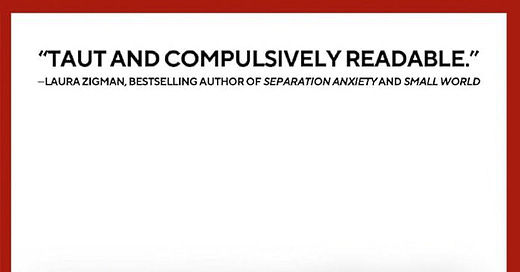In White, Aviva Rubin offers a vivid and haunting account of how ideology is domesticated—how belief systems reproduce themselves not only in public declarations, but also in the private sphere. What emerges is a narrative of slow disillusionment, less interested in dramatic conversion than in the quiet, painful undoing of one’s origins.
“The novel follows Sarah’s gradual movement from silence to action. She attempts to confront the network she was raised within by stepping deeper into it—posing as a participant, navigating layers of deceit and surveillance—until she is entirely submerged.”
Sarah Cartell, the novel’s protagonist, grows up in a family in which domination is routine and love is conditional. Her grandfather, who exerts a gravitational pull over the family, is not a caricature of hate, but something far more unnerving: a man whose cruelty is complex and folded into the mundane. “Compliments were always accompanied by insults, real or implied,” Sarah recalls. “The soup is good Jean, much better than last week’s. That dress is nice. I didn’t much like the green one. He was a big fan of killing two birds with one stone. Nothing good comes of a swollen ego, unless it’s one’s own.” His presence is a study in coercive authority—domestic, rhetorical, and emotional. While not always taken seriously in public, Sarah’s grandfather dominated his family. “Her grandfather carried his frustration home where it got reheated and served to the family with lunch.” Rubin does not embellish these observations; she lets their flatness do the work.
The novel follows Sarah’s gradual movement from silence to action. She attempts to confront the network she was raised within by stepping deeper into it—posing as a participant, navigating layers of deceit and surveillance—until she is entirely submerged. Rubin is careful not to offer her protagonist the comfort of moral clarity. The choices Sarah makes are compromised, and the damage accumulates. Eventually, she finds herself in psychiatric care, where the novel’s tone shifts but never relaxes.
In therapy sessions with Mona Rubinoff, Sarah begins to consider the asymmetries that have shaped her: in power, in intimacy, in ideology. These exchanges are among the novel’s most striking, not because they offer resolution, but because they offer something more difficult—insight. In one of their sessions, Mona points out: “Oh Sarah. You take any opportunity to make yourself out to be bad. You twist what is a positive, like building a friendship, into a negative, about how you ruin things. Or, how you will ruin them in some imagined future.” It’s a moment that captures not only Sarah’s internalization of blame, but the way harm, once absorbed, reshapes perception itself.
Elsewhere, Sarah articulates her growing awareness of imbalance: “I think about how relationships are fucked because they’re always imbalanced. Someone always wants more. Someone always gets less.” What White explores so eloquently is the way this logic—of scarcity, of punishment, of unequal exchange—filters into every part of a life shaped by domination. It is not just an emotional truth, but a political one.
Humour appears often throughout White to highlight the social absurdities Sarah resists but cannot always articulate. Rubin is especially attuned to the policing of gender, and the way notions of femininity are often enlisted to enforce order. “Her friend Virginia who sometimes came over after church told her she should get a lace bedspread with a skirt. You need a lady’s touch. Sarah never wore skirts and had no idea why her bed would need one.” It’s a brief moment that holds a whole history of resistance.
White is grounded in a refusal to resolve. Rubin doesn’t treat departure from an ideological world as an ending, nor does she pretend that survival offers absolution. Instead, the novel sits in ambiguity—Sarah is still trying to see clearly herself.
Rubin’s prose is understated, careful, and quietly devastating. There are no grand rhetorical gestures here, only the slow unfolding of how belief is formed, enforced, and occasionally, unlearned. White is less a story of leaving than of looking back—an account of what remains when one tries to step outside the structure that made them. It is a deeply intelligent and timely novel, one that trusts its readers to reckon with the slow sediment of complicity, and to sit with what won’t resolve into narrative comfort.
About the Author
Aviva Rubin is a Toronto-based independent healthcare consultant recognized for her expertise in patient engagement and advocacy for patient-centred care. Aviva's insightful writing has been featured in esteemed publications such Globe and Mail, New York Times, Toronto Life, Chatelaine, Toronto Star, NOW Magazine, Huffington Post, Reader's Digest, and a couple of anthologies.
Book Details
Publisher: RE: Books
Language: English
Paperback: 200 pages
ISBN-13: 978-1998206308






Looking forward to reading this!
A comprehensive review! This sounds like an excellent read.